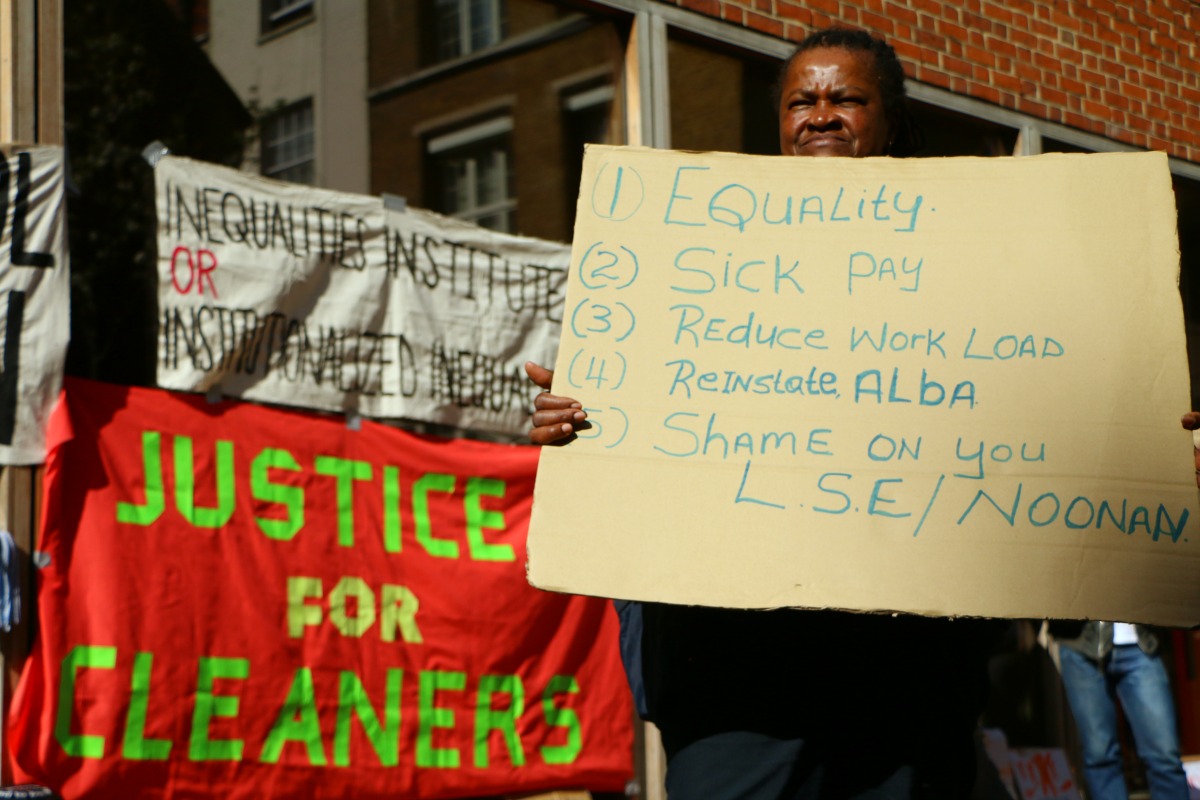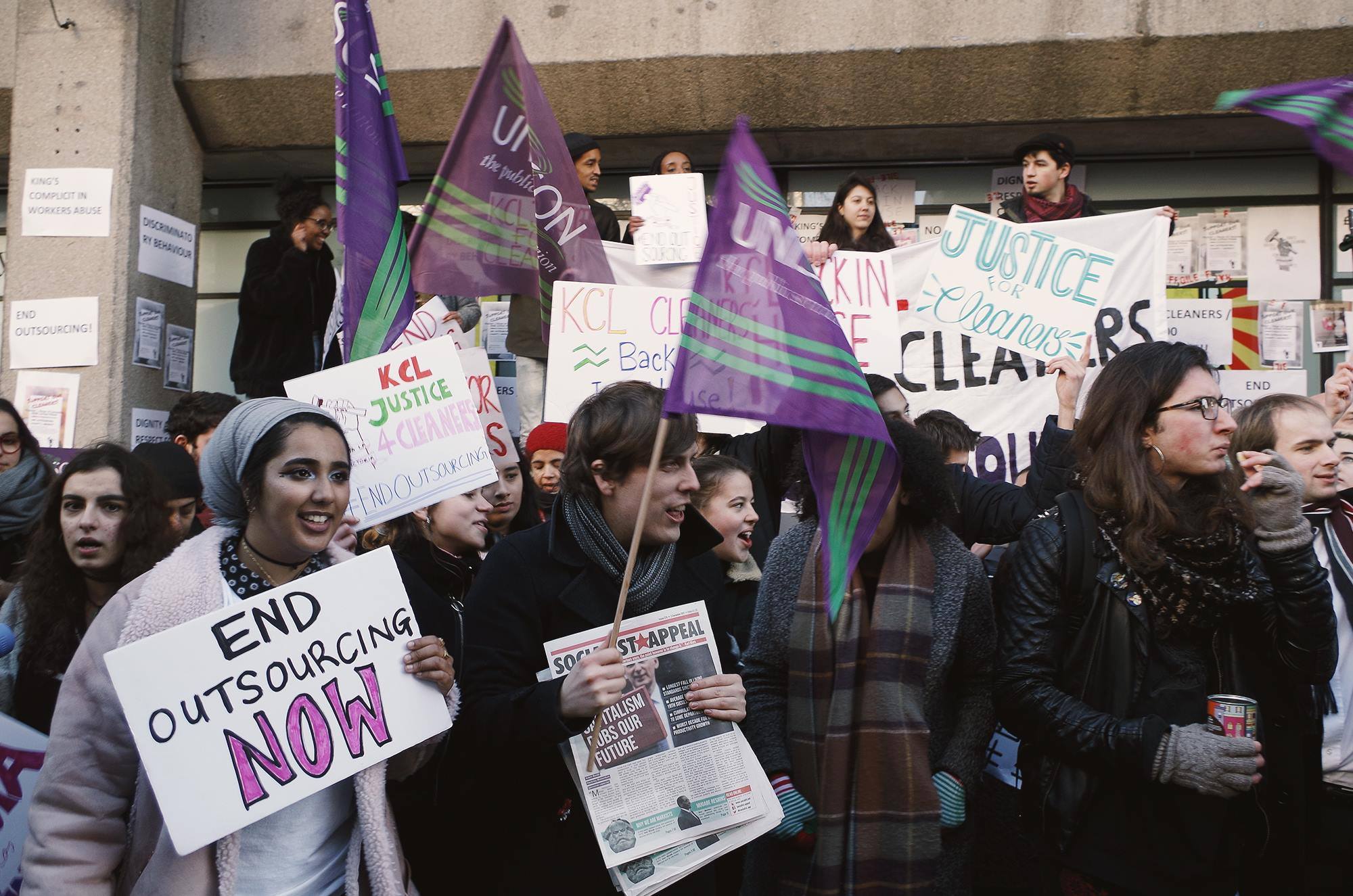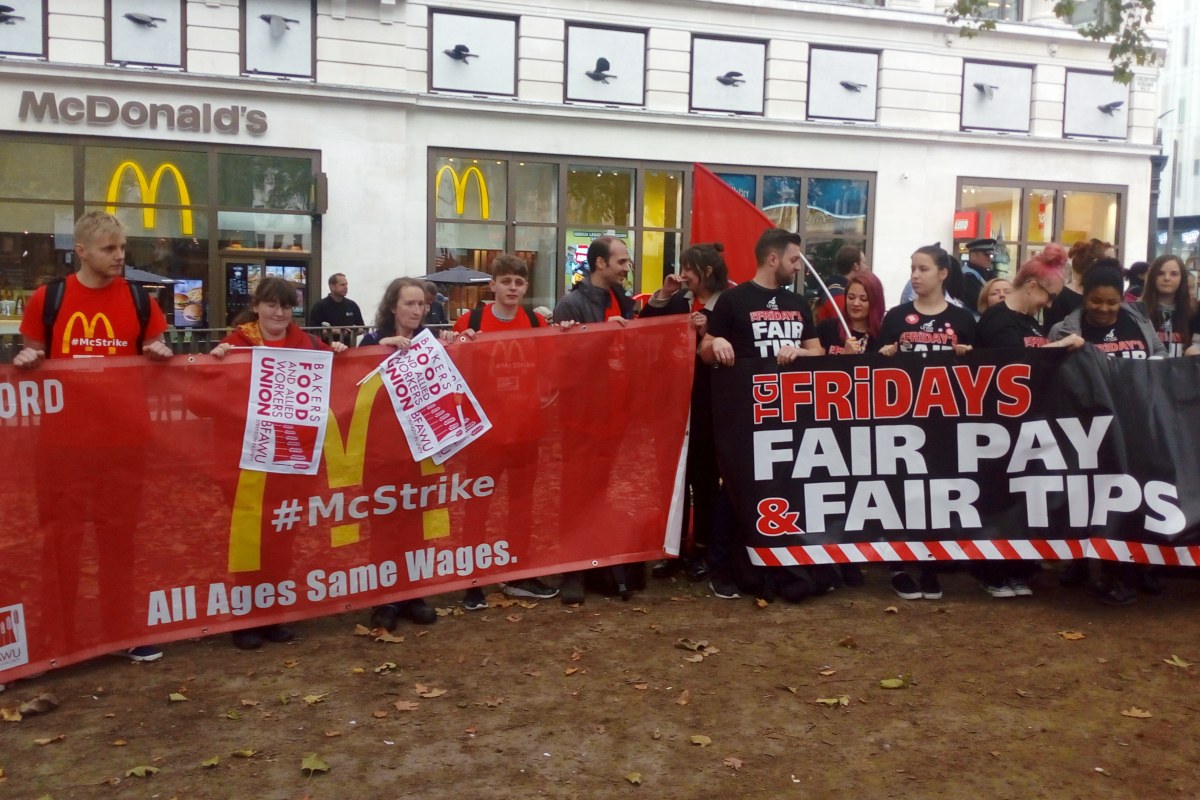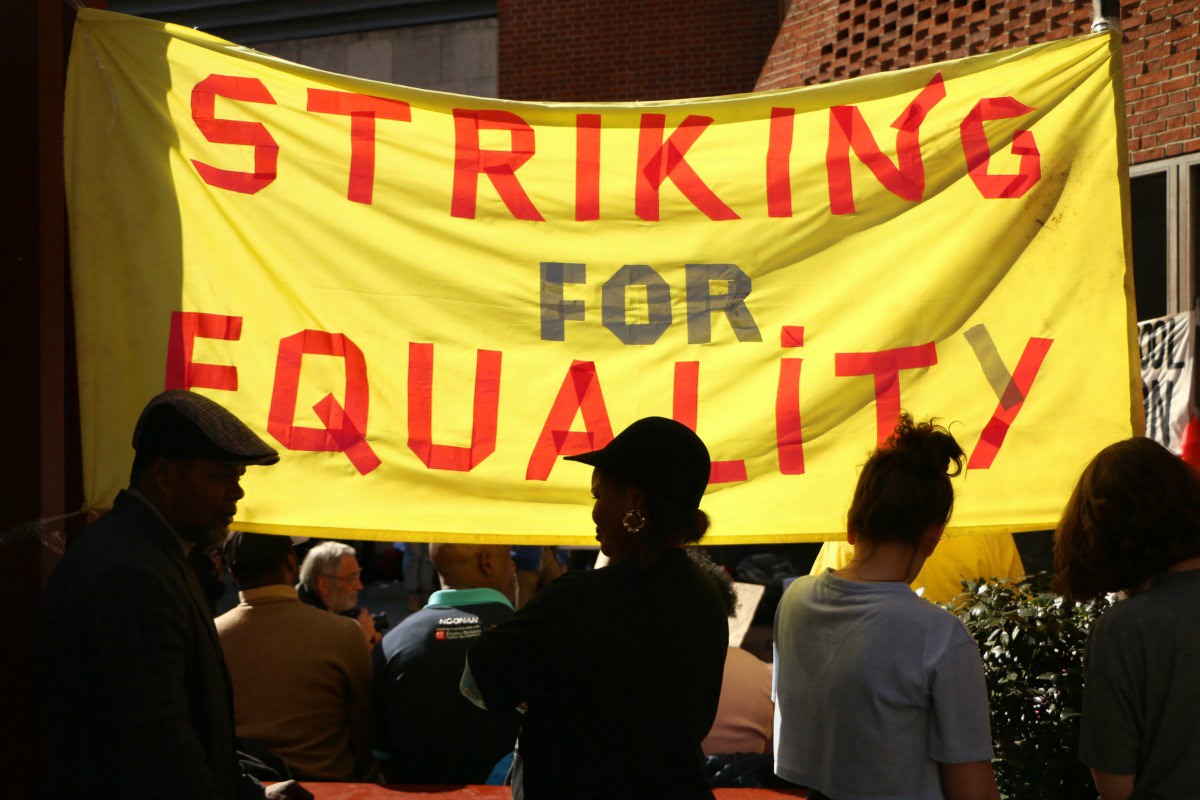Socialist Appeal activists report on the ongoing struggle of cleaners and other outsourced workers at universities across London. Marxist students are pushing for the NUS to commit to fight against precarious work.
At the beginning of this academic year, precarious workers at London universities scored a big success in their fight for decent working conditions. At King’s College London (KCL), the London School of Economics (LSE), and the School of Oriental and African Studies (SOAS), outsourced cleaners employed on precarious contracts were brought in-house, after a sustained campaign that united students and workers.
University of London
Inspired by that victory, campaigning has been stepped up at the University of London (UoL) to bring cleaners, security guards, and catering staff in-house. At present these outsourced workers have far worse terms and conditions than their directly employed colleagues. That means worse sick pay, holiday pay, maternity pay, and pension contributions.
At first, under pressure, the UoL management committed to ending outsourcing. But they have since gone back on their word and are now refusing to even contemplate the question before 2020.
In response, two demonstrations have taken place outside UoL’s Senate House this autumn: one in October, jointly with IWGB members across many different sectors, against all precarious work; and one in November, to coincide with UoL’s foundation day celebrations, at which Princess Anne was present. The impressive turnouts at these prove that this campaign is a force to be reckoned with.
These demonstrations follow several rounds of strike action. Some workers have been on strike for as long as 12 days in total. The next step in the campaign is a boycott of UoL central administration room bookings for events, to which several union branches and others have committed.
Activists at KCL are planning to hand in an open letter to Ed Byrne, the KCL principal and deputy vice-chancellor at UoL, asking him to support the boycott. The aim is to get academics to refuse to teach there, and institutions to refuse to book rooms there.
London School of Economics
 At LSE, although the cleaners won their struggle to be brought in-house, university management has used this as an opportunity to chip away at their pay and conditions. Pay for the cleaners is still below the London Living Wage, and the cleaners are not provided with anywhere to change before and after work.
At LSE, although the cleaners won their struggle to be brought in-house, university management has used this as an opportunity to chip away at their pay and conditions. Pay for the cleaners is still below the London Living Wage, and the cleaners are not provided with anywhere to change before and after work.
An open meeting to discuss the next steps for the LSE campaign took place this autumn, with workers and students participating. At the end of November, over 100 cleaners at LSE submitted a seven-page collective claim through the UVW (United Voices of the World) union demanding, among other things, the London Living Wage and better working conditions.
This just shows the importance of continuing and stepping up campaigns even after initial demands are won. What university management gives with one hand, they will attempt to take back with the other.
University College London
Next to enter the field of battle will be the workers at University College London (UCL). This campaign has already begun. The IWGB union have written to UCL with a list of demands and are holding an open meeting to build support for the campaign. Weekly breakfast stalls are being held to encourage workers to join the union.
Already a large number of cleaning staff and over half of the security staff at UCL have joined the IWGB. More are sure to follow. Thanks to its well-deserved reputation for militancy, the IWGB has been able to build its forces very effectively. Once union density is high enough, industrial action will be called by the IWGB. This will strike a powerful blow against UCL management and force them to meet the workers’ demands.
Next steps
 Building student support for workers at universities is essential. A Marxist delegate to the National Union of Students (NUS) conference from SOAS has managed to put the struggle of precarious workers on the agenda of the NUS conference in April. This is a big step forward. But we should remember that students can play only an auxiliary role in this struggle. Power lies with the workers.
Building student support for workers at universities is essential. A Marxist delegate to the National Union of Students (NUS) conference from SOAS has managed to put the struggle of precarious workers on the agenda of the NUS conference in April. This is a big step forward. But we should remember that students can play only an auxiliary role in this struggle. Power lies with the workers.
If students don’t turn up to class, staging a protest instead, the university still gets the tuition money and continues to function. In the case of SOAS, the university management actually uses its students’ reputation for radicalism as a selling point for new prospective students.
By contrast, if the cleaners and security guards go on strike, the university simply cannot function. Workers have the power to bring university management to its knees, and students must play a supporting role in this.
Likewise, the existing campaigns should link up with other higher education unions. Unison organises administrative staff at universities, and the UCU organises academics. A joint campaign across the unions would pile even more pressure on management. Joint industrial action is not something they could survive and would force university bosses to accept workers’ demands.
Precarious workers are proving that they can organise and win. This could have big implications for the rest of the labour movement. The lesson is clear: if we fight, we can win.
NUS to discuss fight against precarious work
By the Marxist Student Federation
 On 20th November, Marxist student and NUS delegate Nico Navarro Padrón passed a motion through SOAS student union’s general meeting to support the struggles of precarious workers. The motion, unanimously accepted by the meeting, will now be brought to the NUS national conference in April next year.
On 20th November, Marxist student and NUS delegate Nico Navarro Padrón passed a motion through SOAS student union’s general meeting to support the struggles of precarious workers. The motion, unanimously accepted by the meeting, will now be brought to the NUS national conference in April next year.
The Marxist Student Federation fully backs the strikes and struggles of precarious workers. As a society, we have all of the resources necessary to end precarious employment and give workers a decent living wage. But under this rotten capitalist system, those resources are concentrated within the hands of the few who own and control the economy.
The passing of this motion at SOAS highlights the growing discontent amongst students towards the capitalist system. Many young people and struggling students today are compelled to work on zero-hour contracts, in underemployment, and in dire working conditions. Universities also employ many of their staff on such precarious contracts.
Marxist students will therefore continue to bring motions such as these to student unions, calling for students to unite with workers and arguing for a socialist alternative to low pay and insecure work. Solidarity with precarious workers!
Motion passed at the SOAS student union general meeting:
NUS conference believes:
- Precarious employment has become a typical feature of our lives under capitalism.
- Over 10 million people in Britain are currently considered to be in precarious employment.
- Low pay, poor working conditions, zero-hour contracts and minimal rights have become standard.
- This leads people to be barely able to live off their wages and are living in a desperate social and financial situation.
- At universities, the result of this has been recent campaigns to bring cleaners and other staff in-house.
- The Conservative government has been promoting and encouraging precarious employment.
- An upsurge in precarious work is a natural product of capitalist crisis.
NUS conference further believes:
- We have the technology, resources, and ability to plan the economy so that no-one has to work in precarious employment.
- All workers should get a real living wage, fixed-term contracts, and full workers’ rights.
NUS conference resolves:
- To support, with financial help and active participation, the struggles of precarious workers.
- To help organise a joint committee of union representatives of all precarious workers at universities, colleges, and schools.
- To make the case for and participate in joint union action, on a national scale, in defence of the rights of precarious workers
- To campaign for the election of a government for the many, not the few, that will fundamentally transform society so that the economy is planned and run in the interests of need, not profit






